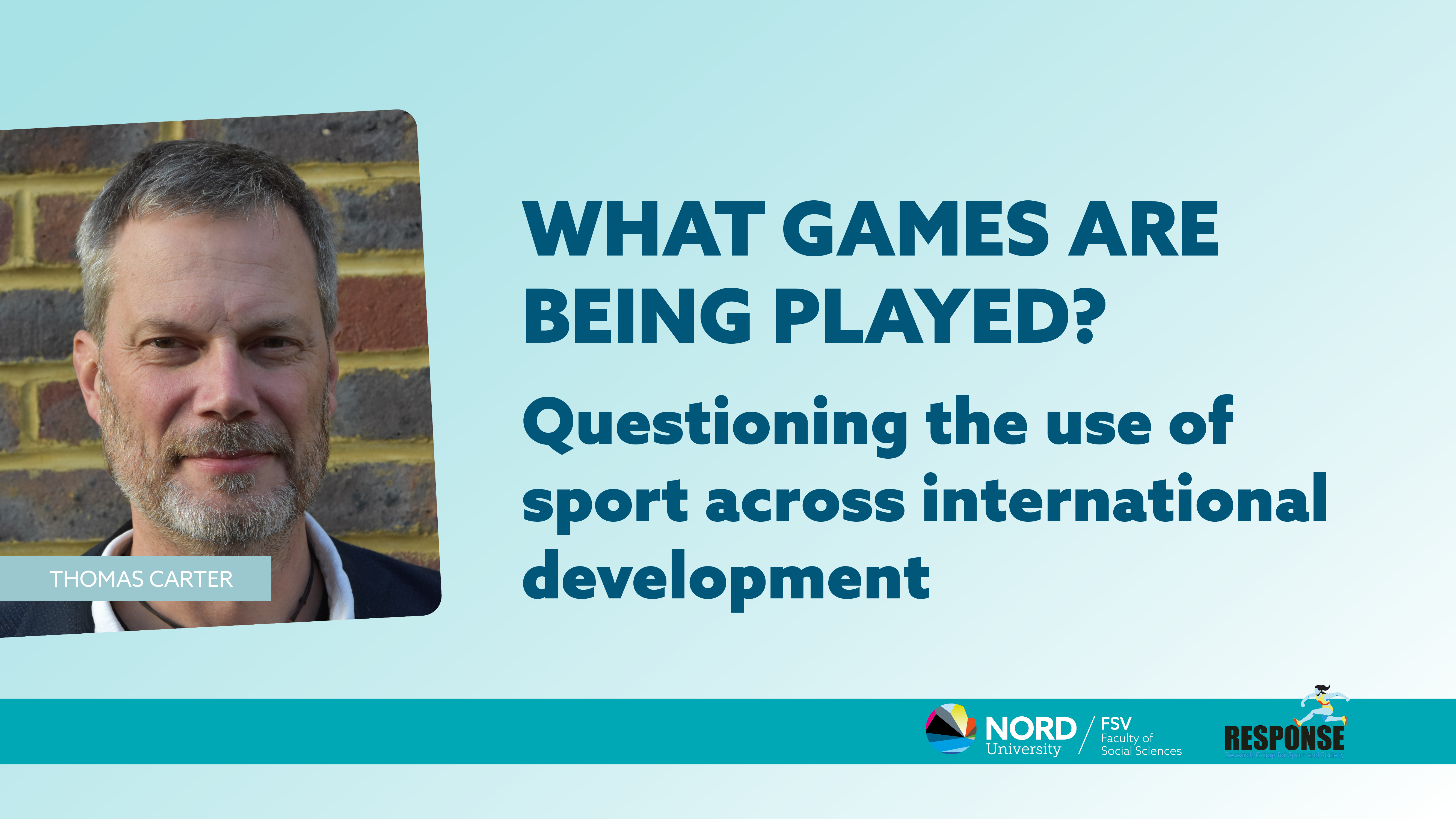
Velkommen til gjesteforelesning med Thomas Carter fra Universitetet i Brighton. Seminaret er åpent for alle. Ta kontakt med Sean Heath (sean.heath@nord.no) hvis du ønsker å delta digitalt via Microsoft Teams.
Dato: onsdag 22. april 2025
Klokka: 10.00 – 11.00
Sted: Møterom BODCA3003, Nord universitet.
About the lecture:
This presentation is part of an ongoing ethnographic field project that started in 2017 on the actual uses and usefulness of sport in the international development sector. Framed and driven by international bodies, most especially the United Nations, sport is employed on various projects for myriad purposes to meet an array of goals. The United Nations explicitly advocates that sport is a vital instrument for achieving many of the targets of the UN Sustainable Development Goals that range from universal education, improved health of populations, to clean water, peaceful and just institutions, reduced violence, crime, corruption, and extremism. Sport, quite simply is presented and implemented as some magic elixir that can alleviate a range of human ills and suffering. Ethnographic evidence, drawn from multiple countries, organizations, and programs, belies authorities’ insistence on the power of sport to make change happen and on the “evidence” based on managerial technical rationalities that proclaims the power of sport. After setting the scene, ethnographic evidence will be presented to illustrate the apparent contradictions and hollowness to the discourses, practices, and ideologies of international development and of sport itself. In short, what this research does is raise some core, basic questions as to what we think sport is, what exactly are we playing at, and should we be playing such games.
About Thomas Carter:
Thomas Carter is an anthropologist at the University of Brighton in Brighton, East Sussex. He directs Footbll4Peace, an international NGO dedicated to using values-based education programmes delivered through sport to address divisions in conflict-ridden societies as a means to initiate and foster conflict resolution. He also co-directs the ESRC South Coast Doctoral Training Program with colleagues from universities of Chichester, Portsmouth, and Southampton.

